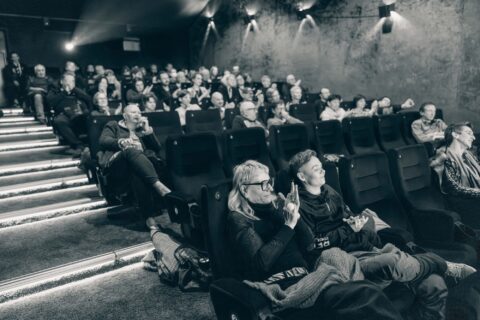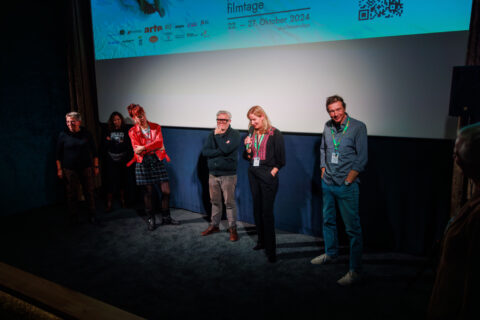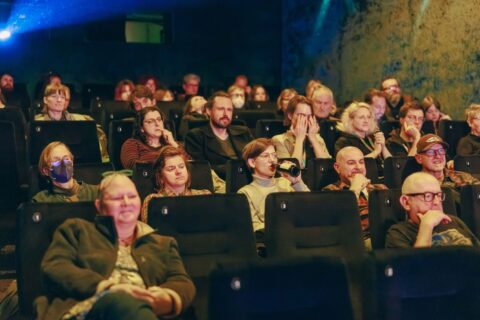Don’t Talk, Do! She-Punks from 1977 until Today
Punk is a promise. When coming from England in the late '70s, it reaches German, Austrian, and Swiss clubs, it heralds rebellion and self-empowerment. To express oneself, neither education nor perfection is necessary; what matters is the idea and the courage to step onto a stage. “Don’t talk, do it!” is the motto. This applies not only to the punk alpha males but especially to the women in the scene. Songs emerge that tackle female stereotypes and bourgeois conventions, as well as machismo and dogmatic feminism. They speak of female desire and sexual self-determination. And about claiming space within the male-dominated scene and in society as a whole.
Cast
- Gudrun Gut
- Gudrun Gut
- Beate Bartel
- Beate Bartel
- Bettina Köster
- Bettina Köster
- Klaudia Schifferle
- Klaudia Schifferle
- Sara Schär
- Sara Schär
- Madlaina Peer
- Madlaina Peer
- Martina Weith
- Martina Weith
- Bettina Flörchinger
- Bettina Flörchinger
- Sandy Black
- Sandy Black
- Anja Peterssen
- Anja Peterssen

Don’t Talk, Do! She-Punks from 1977 until Today
Reto Caduff
- Documentary
- Production Country / Year
- Germany, Switzerland 2024
- Language
- dt., engl. OF m. engl. UT
- Format
- DCP, Color, 90min
1.85:1, Discrete 5.1
- Original Title
- Einfach Machen – She-Punks von 1977 bis heute
Nominated for:
Granit – Hofer Dokumentarfilmpreis
Director & Crew

Reto Caduff
Born in 1967 in Zurich/Switzerland. Trained in Swiss Typography and Graphic Design. Worked as an editor and moderator for radio and television and as a photographer and publisher. Owns a creative agency. Active as a director and writer.
Filmography
| 1995 | Kids&Guns | ||
| 1996 | Area 51 | ||
| Passport | |||
| Lowrider | |||
| 1997 | Navajo Indian | ||
| Militia | |||
| 2004 | Krokus | ||
| 2006 | Lovebugs - Taiwan Jetlag | ||
| A Crude Awakening - The Oil Crash | |||
| 2009 | Charlie Haden | ||
| 2011 | The Visual Language of Herbert Matter | ||
| 2018 | Conny Plank - Potential of Noise | ||
| 2024 | Einfach machen - She-Punks von 1977 bis heute | Dokumentarfilm | 2024 |
“Until the 1970s, much of rock and pop music was dominated by men. Women were mostly responsible for singing on stage, while the guys played the instruments. The punk movement, beginning around 1976, was the catalyst for a first change in the situation. The stage suddenly became accessible to everyone. Young female musicians and artists took advantage of this and formed all-female bands—even in Germany and Switzerland. Despite the different sounds and without realizing it at the time, these bands were part of a female revolution in the music industry that would have a lasting impact on subsequent female artists. It is a story that has not often been told. Although punk faded in the early 1980s, these strong female personalities left a lasting impression, and the experiences from that time shaped their futures.”
Reto Caduff
- Producer
- Oliver Huzly
- Katrin Renz
- Danielle Giuliani
- Sound Designer
- Matz Müller
- Editor
- Beatrice Babin
- Ginés Olivares
- Director of Photography
- Stephan Huwyler
- Roman Schauerte







